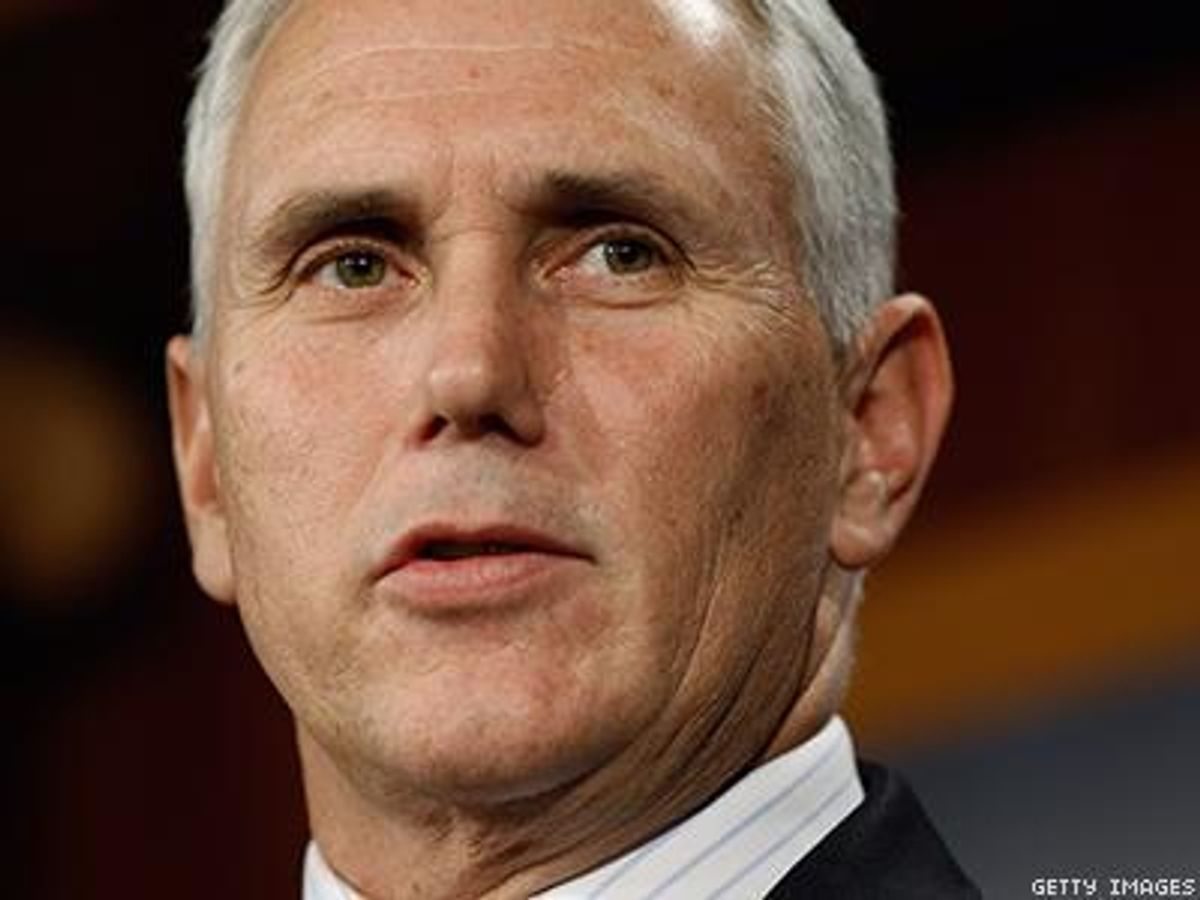Indiana Gov. Mike Pence has written an op-ed in The Wall Street Journal defending his state's newly passed Religious Freedom Restoration Act, saying it " is not a 'license to discriminate,' either in Indiana or elsewhere."
"I abhor discrimination," the conservative Republican governor writes in the piece, published online Monday evening. "I believe in the Golden Rule that you should 'do unto others as you would have them do unto you.' If I saw a restaurant owner refuse to serve a gay couple, I wouldn't eat there anymore. As governor of Indiana, if I were presented a bill that legalized discrimination against any person or group, I would veto it. Indiana's new law contains no reference to sexual orientation. It simply mirrors federal law that President Bill Clinton signed in 1993." He also says 30 other states have similar laws, 19 by legislative action and 11 via court interpretation.
However, some legal scholars say Indiana's law is very different from the federal Religious Freedom Restoration Act and state RFRAs. "The Indiana law explicitly allows any for-profit business to assert a right to 'the free exercise of religion,'" writes constitutional law professor Garrett Epps in The Atlantic. "The federal RFRA doesn't contain such language, and neither does any of the state RFRAs except South Carolina's."
Also, Epps notes, "The Indiana statute explicitly makes a business's 'free exercise' right a defense against a private lawsuit by another person, rather than simply against actions brought by government."
Pence further writes that President Obama supported the Illinois RFRA when he was a state senator in 1998, a point he has been making for several days. Fact-checking website PolitiFact explains that Obama did support the Illinois bill, but it was very different from Indiana's. The Illinois law speaks of religious practices by a "person," but does not offer a definition, while the Indiana law defines "person" to include corporations.
What is more, "the Illinois law was written and designed to allow someone to change the government's burdens on people's religious beliefs," Eunice Rho, American Civil Liberties Union advocacy and policy counsel, told PolitiFact. "The Indiana law specifically says you can use the law in a lawsuit even if the government isn't a party."
Illinois also has a statewide law banning discrimination based on sexual orientation or gender identity, which neighboring Indiana does not. The ACLU and other civil rights groups Monday released an open letter to Pence, Indiana House Speaker Brian Bosma, and Senate President David Long calling on them to support the Fairness for All Hoosiers Act, legislation that would ban such discrimination. Attempts to add provisions like this to the Indiana RFRA failed, the signatories note, "leaving the inescapable impression that the proponents of this law did indeed intend to authorize discrimination against LGBT people."
In addition to the ACLU, signatories are the Equality Federation Institute, Freedom to Marry, Gay and Lesbian Advocates and Defenders, GLAAD, the Human Rights Campaign, Lambda Legal, the National Center for Lesbian Rights, the National LGBTQ Task Force, the National Center for Transgender Equality, and the Transgender Law Center.














































































